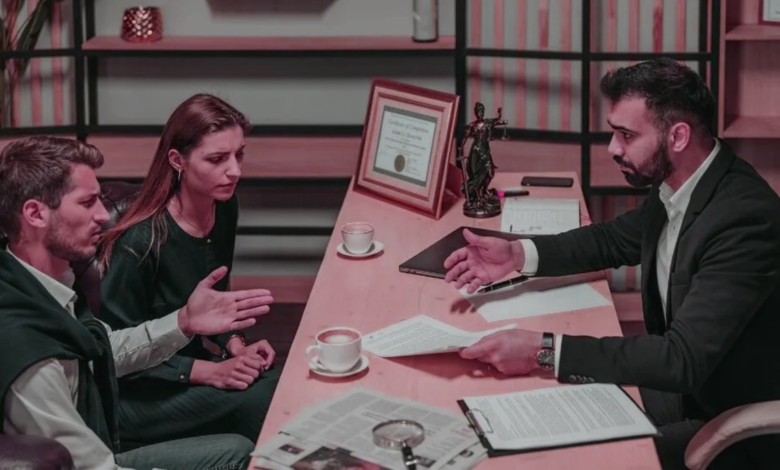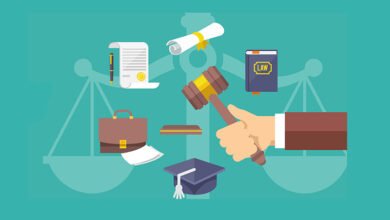Illinois Debt Collection Laws: How to Stop Harassment Calls
Illinois debt collection laws protect you from harassment calls Learn how to stop collectors legally with cease & desist letters and FDCPA rights

Illinois debt collection laws provide strong protections for consumers facing aggressive or harassing debt collectors. If you’re receiving constant calls, threats, or misleading statements about a debt you may or may not owe, you have rights under both federal and state law. The Fair Debt Collection Practices Act (FDCPA) sets nationwide standards, while Illinois has additional safeguards through the Illinois Collection Agency Act and Consumer Fraud Act. Understanding these laws is the first step to stopping harassment and taking back control of your financial peace of mind.
Debt collection harassment can take many forms – from repeated calls at all hours to false threats of legal action or arrest. Many consumers don’t realize that Illinois debt collection laws actually prohibit these tactics and provide ways to fight back. Whether the debt is legitimate or potentially mistaken, you have the right to demand proper validation, restrict communication methods, and even sue collectors who violate the rules. This guide will walk you through your rights and the step-by-step process to stop collection harassment in Illinois for good.
Illinois Debt Collection Laws
Understanding Debt Collection Harassment in Illinois
Debt collection harassment occurs when a collector uses aggressive, deceptive, or abusive tactics to pressure you into paying. Under Illinois debt collection laws, collectors must follow strict rules calling at unreasonable hours, using threats, or lying about legal consequences are all illegal. The FDCPA applies nationwide, but Illinois has additional protections through the Illinois Collection Agency Act (225 ILCS 425) and the Consumer Fraud and Deceptive Business Practices Act (815 ILCS 505/2). Knowing these laws helps you recognize violations and take action.
Your Rights Under Federal and Illinois Law
The FDCPA prohibits debt collectors from engaging in harassment, such as Calling repeatedly to annoy or intimidate you. Using obscene or threatening language. Falsely claiming you’ll be arrested or sued if they don’t actually intend to take legal action. Contacting you at work after you’ve told them to stop. Discussing your debt with unauthorized third parties. Illinois law goes further by requiring collectors to be licensed and follow ethical guidelines. If they violate these rules, you can file complaints with the Illinois Attorney General’s Office or the Illinois Department of Financial and Professional Regulation (IDFPR).
How to Stop Debt Collection Harassment in Illinois
Send a Cease-and-Desist Letter
One of the most effective ways to stop collection calls is by sending a written cease and desist letter. Under the FDCPA, once a collector receives this letter, they can only contact you to confirm they’ll stop calling or to notify you of legal action. Your letter should include Your name and address. A clear statement demanding an end to all phone calls. A warning that further calls will be reported as harassment. Illinois Debt via certified mail with a return receipt so you have proof of delivery.
Request Debt Validation
If you’re unsure whether the debt is legitimate, you have the right to request validation within 30 days of first contact. The collector must provide The original creditor’s name. The amount owed. Proof that they are authorized to collect the debt. If they fail to validate the debt, they must stop collection efforts.
Keep Detailed Records
Keeping thorough documentation of debt collection calls is Illinois Debt protecting your rights and building a strong case if you need to file a complaint or lawsuit. Here’s exactly what you should record and why it matters:
Date and Time of Each Call
Why it’s important Debt collectors are prohibited from calling outside allowed hours (before 8 a.m. or after 9 p.m. unless you agree). How to document it Note the exact date, start time, and duration of the call. Example: “June 15, 2024 – Call received at 9:45 p.m. (lasted 3 minutes).”
Name of the Collector & Company
Why it’s important The Fair Debt Collection Practices Act FDCPA requires collectors to identify themselves truthfully. Some use fake names or refuse to disclose who they work for. How Illinois Debt it Ask for and record The caller’s full name. The collection agency’s name. Their phone number and business address. Example: “Caller identified as ‘John Smith’ from ABC Collections (phone: 555-123-4567).”
Summary of What Was Discussed
Why it’s important Collectors often make false claims about debts, lawsuits, or credit damage. Recording conversations helps prove misconduct. How to Illinois Debt Write down key statements word-for-word if possible. Note if they threatened legal action, arrest, or wage garnishment. Save any voicemails (you may record calls in Illinois with one-party consent). Example: “Caller said, ‘Pay $1,000 today or we’ll file a lawsuit by Friday.'”
Abusive, Threatening, or Misleading Statements
Why it’s important The FDCPA bans threats, profanity, or Illinois Debt (e.g., pretending to be a lawyer or government agent). Red flags to document are Swearing, yelling, or insults. Claims that you’ll be arrested if you don’t pay. False statements about the debt amount or consequences. Example: “Caller shouted, ‘You’re a deadbeat who’s going to jail!'”
Additional Evidence to Collect
Save all written correspondence (letters, emails, texts). Take screenshots of caller ID showing repeated calls. Record calls legally (Illinois is a one-party consent Illinois Debt can record if you’re part of the conversation).
How to Organize Your Records
Use a harassment log (a simple spreadsheet or notebook). Back up voicemails and recordings (email them to yourself or use cloud storage). Keep everything in one folder (digital or physical) for easy access.
Block Unwanted Calls
While legal action is the best way to stop harassment, you can also Use call-blocking apps (e.g., Nomorobo, True caller). Request your phone carrier to block specific numbers. Change your phone number if the harassment is severe
File a Complaint or Lawsuit
If a collector violates the law, you can Report them to the CFPB or Illinois Attorney General. Sue for damages (up to $1,000 under the FDCPA + attorney fees).
Read More: How to Choose the Best Lawyer for Your Legal Needs: Expert Tips
Conclusion
Illinois debt collection laws provide powerful tools to protect consumers from harassment and abusive debt collection practices. By understanding your rights under both federal and state regulations, you can effectively stop unwanted calls, dispute questionable debts, and hold collectors Illinois Debt for violations. Whether through cease-and-desist letters, debt validation requests, or formal complaints to regulatory agencies, Illinois residents have multiple avenues to regain control of their financial privacy and peace of mind.
Remember that Illinois debt collection laws are designed to prevent abusive tactics while still allowing legitimate debt collection to occur. If collectors continue harassing you after you’ve asserted your rights, don’t hesitate to escalate the matter by filing complaints with the Illinois Attorney General’s office or consulting with a consumer protection attorney. With proper documentation and persistence, you can stop the harassment and potentially recover damages for any violations of your rights under these protective laws.
FAQs
Can a debt collector call me multiple times a day?
No, repeated calls intended to harass you are illegal under the FDCPA.
What should I do if a collector threatens me?
Document the threat and report it to the Illinois Attorney General or CFPB.
Do I have to pay a debt if it’s not validated?
No, if the collector fails to validate the debt, they must stop collection efforts.
Can a debt collector call my family or employer?
Only to locate you—they cannot discuss your debt with others.
How long can a debt collector pursue me in Illinois?
Most debts have a 5-year statute of limitations, but collectors may still try to collect older debts.











